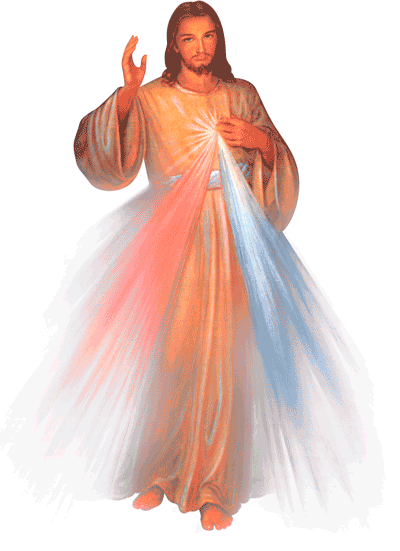
How to be or become a follower of Jesus Christ in the world and in your situation« Where is the one who has been born king of the Jews? We saw his star when it rose and have come to worship him »
THE GOSPEL TALE IS UNEQUALABLE, AND THE HARMONY OF HISTORICAL COINCIDENCES AND HOLY SCRIPTURES CONFIRMS THE TRUTH OF THOSE FACTS, WHICH REALLY HAPPENED JUST AS THEY ARE REFERRED TO BY THE EVANGELIST. King Herod called the 'great' couldn't find the newborn Jesus and, which was not unusual in those days  in the eastern world, ordered the slaughter of the innocents.
in the eastern world, ordered the slaughter of the innocents.
But Jesus miraculously escaped, even if there had certainly been no leaks of news before the massacre.
The whole that can be deduced from the historical literature and the holy scriptures, examined with reason and faith united together, is undoubtedly true.
Whoever doesn't believe, but ignorant or not in good faith, cannot fail to recognize the truth of the facts even if he doesn't believe in the supernatural.
Such a person can imagine and propose many hypotheses to support his thesis, but it's unthinkable that he can deny the reality of facts that the Evangelist proposes today.
To me, who received the gift of the faith, the reading of this passage encourages to persevere and not to get lost along the roads of life; I'm sure that Jesus Christ came into the world to make us God's adopted children, and that He offers us the possibility of an eternal life without pain or sorrow.
So what really does matter in this world is to strive following the Christ's teachings. Thus it's necessary in my opinion to read a passage from the Gospel every single day, to pray and meditate about.
But this isn't enough: it is also necessary to read, to study and to research in order to understand how each of us, in the position in which God wanted to place, and according to our concrete responsibilities, can correctly contextualize the evangelical teaching in the actual reality and strive to apply it in the everyday's practice.
End
HISTORICAL NOTES
The birth of Jesus
The year of Jesus' birth was not exactly what we know today, but many historians claim that it actually happened six years before the conventionally set one.
In fact, the census ordered by the Emperor Augustus was anticipated to avoid confusion with Palestine, because there they used to be registered in the place of family's origin instead of the residence place.
Even day and month of Jesus' birth are conventionally set on December 25, to adapt to a celebration that already exists in the Romanized world.
I leave it to the reader to find out what pagan holiday it is.
The birth of Jesus took place in a makeshift shelter, that small stable, because Mary and Joseph arrived very late at night and the birth was imminent, probably already in progress.
From that stable the Holy Family had surely come out as soon as Mary had recovered from the childbirth labors, and as the Evangelist relates she had gone to THE HOUSE of the family of St Joseph, where the epiphany took place.
Epiphany
Epiphany, from the Greek ἐπιϕάνεια that is 'manifestation, revelation' celebrates the day in which God revealed to men the birth of his Son, a revelation that was made to the the Wise Men called back to Bethlehem from afar after seeing the star announced by the prophecies in the Ancient Testament.
As we all know or should know, the Savior's birth took place during the Principality of Caesar Octavian Augustus (27 BC - 19 AD) who managed to guarantee a long period of peace, prosperity and political stability (passed down in history as "Pax Augustea" ), continued even during the principality of his first successors.
The Three Wise Men
Tradition says that they were 3 based on the number of gifts they brought (Gold, Frankincense, Myrrh), presumably they where rich gentlemen who studied astrology, and knew the prophecies of the Old Testament.
The three illustrious lords, practically very high-ranking characters, bearers of the gifts of gold, incense and myrrh, symbolically came from the three parts of the then known world: Asia, Europe and Africa.
They didn't go to pay homage to Jesus in a house, not to that small stable. Presumably the Holy Family had left that place as soon as Mary recovered from the childbirth's fatigue, and the Evangelist relates they went IN THE HOUSE.
It is clear that the house belonged to Saint Joseph family, where they hadn't been able to go immediately because they had arrived at night, very late and the birth was imminent, probably when already in progress.
Because the Holy Family is still portrayed as modest and poor when not indigent
It seems evident that in the centuries of poverty and economic decline that followed the decline and dissolution of the Western Empire, when serious and generalized states of food shortages and widespread famine were added to the usual diseases and plagues, it seemed necessary in the Church to flaunt pauperism, almost always understood as personal sacrifice to try to imitate Christ, the poor and humble par excellence.
At those times reading and writing assumed the character of being reserved, a privilege of the Church and of other 'insiders'.
Among the rest of the population, including the nobility, illiteracy was the rule, and in the middle age the relationships between men were intended as regulated by God (trough the Church).
In the middle age there also arose movements of rebellion against the severe and sad living conditions of many poor areas, and somewhere to the preaching was also added violence and expropriation against the wealthiest, real acts of banditry carried out in the name of the evangelical poverty message and of the aid to the poor.
The most famous is the movement of Frate Dolcino, a real forerunner of Marx and of Catholic distributism.
Obviously the current Marxians see the his figure according to their ideology and do not particularly mention the crimes committed by his bands of followers and desperate people.
In the Middle Ages there were also hermits, ascetics, and great saints such as St. Francis of Assisi (Assisi, 1181/1182 – Assisi, october 3 1226) who made his rule of life the absolute poverty.
Jesus' family was by no means poor, nor were common people their relatives
Personally I am somewhat irritated by certain narratives and certain media representations, when history is distorted to the advantage of the ideology of the politically correct, and also quite useful to the detractors of the Catholic faith.
There were those, for example, who even depicted Saint Joseph as a poor outcast unemployed because of the economic crisis (but which one?), and the Virgin Mary a housewife who took care of the house, maybe picking up here and there and doing the most humble works, and perhaps struggling to put together lunch and dinner.
It also irritates me - fortunately it happens more rarely today - when some Catholic priests in their homilies have stopped explaining the gospel, dealing more with Caesar's affairs and less with God, then misunderstand the evangelical teaching and the history of the Jesus's time.
THEREFORE I HAVE THE OBLIGATION TO CLARIFY THAT:
- St. Joachim (Joaquim) father of Mary was an important priest of the Temple, and descended from King David.
- St Anne and St Joachim were very rich too, and not just wealthy.
- The Virgin Mary, Anna and Joachim daughter, was a noble girl educated in the temple (you can see why in the scriptures. Which was rare for Jewish women, she could read and write and also had a good cultural background in general.
For us believers the Virgin is also a marvel of intelligence and beauty, having been conceived without the original sin that instead afflicts us all. - Saint Joseph, who descended from King David too, the vulgate defines him as a carpenter, in reality we see that in the ancient Latin translation of the Gospels he is called FABER (builder, constructor) and not LIGNARIUS (carpenter).
Joseph, the carpenter referred to in the Gospels was probably therefore a costructor and not a modest skilled worker.
But, after all, we can also imagine the importance that good and skilled artisans had in those times when everything was handmade.
Today's mistake
According to my modest opinion is therefore an error to interpret the Scriptures, the discourse of the Beatitudes for example, according to medieval and obsolete categories, that is do not investigating their true meaning.
If we read and meditate the Holy Gospels in a rational way by relating them to the history of the time, in my opinion we will have the confirmation - even if it were needed - that the preaching of Jesus is current and very lively.
Jesus Christ always makes it clear:
- His teaching is directed to the individual person, who in ordinary life and according to his possibilities must strive to understand it in order to put it into practice. Heroism belongs to a few while the sanctity of ordinary life can be a goal for everyone.
- That political and personal ethics, although inspired by the same principles, cannot be applied with the same practice.
In particular, the episode of the Centurion's servant and the "give to Caesar what belongs to Caesar" clarify our ideas.
And the concept of the legitimate defense of one's family and property is also included in some passage-
If not committing the mistake of today, that is trying to avoid the influence of Marxian distortions, the Gospel can be applied and put into practice in harmony with the evolution of all times' human society.
Let us give a contribute that the Christ's question: «when I return will I still find faith on Earth?» shall find a positive answer, and that the Faith remain and indeed increase.

No fear! the Mercy of Jesus
is INFINITE
Holy Gospel of Jesus Christ according to Saint Matteo 2,1-12
2 After Jesus was born in Bethlehem in Judea, during the time of King Herod, from the east came to Jerusalem Three Magoes and asked, “Where is the one who has been born king of the Jews? We saw his star when it rose and have come to worship him.”
3 When King Herod heard this he was disturbed, and all Jerusalem with him.4 When he had called together all the people’s chief priests and teachers of the law, he asked them where the Messiah was to be born.
5 “In Bethlehem in Judea,” they replied, “for this is what the prophet has written:
6 “‘But you, Bethlehem, in the land of Judah, are by no means least among the rulers of Judah; for out of you will come a ruler who will shepherd my people Israel.’[b]”
7 Then Herod called the Magi secretly and found out from them the exact time the star had appeared. 8 He sent them to Bethlehem and said, “Go and search carefully for the child. As soon as you find him, report to me, so that I too may go and worship him.”
9 After they had heard the king, they went on their way, and the star they had seen when it rose went ahead of them until it stopped over the place where the child was.
10 When they saw the star, they were overjoyed.
11 On coming to the house, they saw the child with his mother Mary, and they bowed down and worshiped him. Then they opened their treasures and presented him with gifts of gold, frankincense and myrrh.
12 And having been warned in a dream not to go back to Herod, they returned to their country by another route.
Copyright © Confraternity of Christian Doctrine, USCCB



